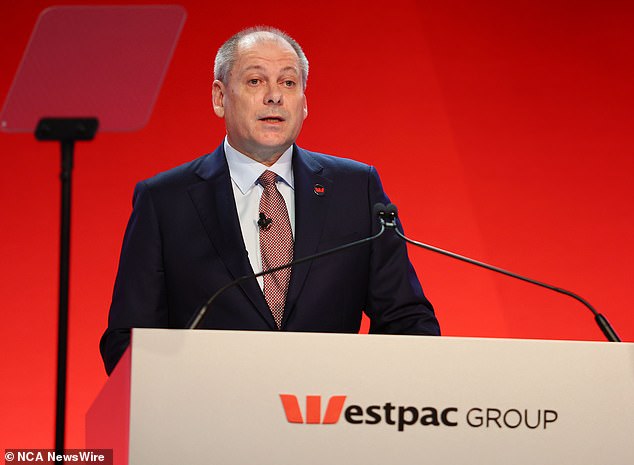Westpac chief executive Peter King warned borrowers’ interest rates could remain higher for longer.
The Reserve Bank of Australia’s cash rate is already at a 12-year high of 4.35 per cent.
But new inflation data for the March quarter has economists reconsidering the prospect of rate cuts in late 2024.
“While inflation has fallen, bringing it down to the target range is proving difficult globally and here in Australia,” he said on Monday.
“Interest rates are likely to stay high for longer.”
Westpac chief executive Peter King warned borrowers that interest rates could remain higher for longer.
King said Westpac was also seeing more borrowers struggling to pay their mortgage, following 13 interest rate increases in 2022 and 2023 and the end of the low and middle income tax offset in June 2022 that returned up to $1,500 to Australians earning up to $126,000.
“While we have seen an increase in stress on our loan portfolios, this is to be expected given the large rise in interest rates, high inflation and taxes,” he said.
“We continue to have adequate provisions and a solid balance sheet, we are in a good position to help customers.”
He made the prediction as Westpac revealed its half-year net profit of $3.342 billion, for the first half of 2023-24, was 16 per cent weaker than the corresponding six-month period in 2023-23, which spans July to December.
Westpac officially predicts a rate cut in November, rather than an easing in September.
Chief economist Luci Ellis, a former assistant governor of the Reserve Bank, changed Westpac’s prediction after new data from the Australian Bureau of Statistics, released on April 24, showed that underlying measures of inflation in the year to March were still above 4 percent, or at levels well above. the RBA target of 2 to 3 percent.
Headline inflation fell to 3.6 percent from 4.1 percent, but this figure included volatile priced items, including fruits and vegetables that were 0.2 percent cheaper over the year.

The Reserve Bank of Australia’s cash rate is already at a 12-year high of 4.35 per cent. But new inflation data for the March quarter has economists reconsidering the prospect of rate cuts at the end of 2024 (pictured, file image).

